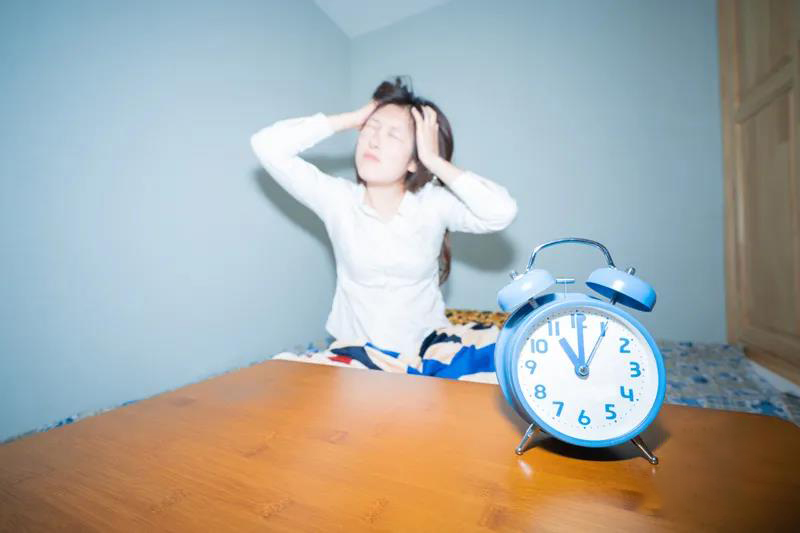

Some people don’t seem to be in a good mood after getting up in the morning, and some people are furious.

Some people still feel tired when they wake up, their minds are not clear, their mood is not good, their physical activities are not flexible, and everything is wrong.

Is this lazy or hypocritical?
In fact, this may be caused by “getting up on the wrong side of the bed”
Today we are going to talk about getting up on the wrong side of the bed from a scientific point of view
What is getting up on the wrong side of the bed?
Getting up on the wrong side of the bed is a negative emotion that occurs after sleep. It is medically called “sleep inertia” and “sleep inertia”. It usually manifests as drowsiness, cognitive decline, and moodiness when waking up. In severe cases, there may be a sense of direction disorder or confusion.

Many people have felt the anger of getting up. According to statistics, 6 out of every 10 people will get angry after getting up. Among them, women have a higher incidence than men, and 6 out of 7 women are getting up on the wrong side of the bed. This may be related to the need for women to take on more work after getting up in the morning.
The duration of such bad mood varies from person to person. Some people will last about 15 minutes, and some people will last for an hour or more. The specific duration is related to the interrupted sleep stage when a person wakes up.
Why is someone getting up on the wrong side of the bed?
There are many factors that affect. Sleep habits, personality characteristics, occupation, personal biorhythm and other factors will affect the occurrence of the bad mood after getting up.
Sleep deprivation can aggravate the discomfort caused by sleep inertia. People who often stay up late will likely be in bad mood after waking up, and those who often rotate night shifts are more likely to have it.

If you are awakened during the deep sleep period and the rapid eye movement period, you will have greater sleep inertia. At this time, you are more prone to “get up gas” such as irritability, dizziness and headache.
So getting up on the wrong side of the bed does not only appear in the morning. If you take a long nap, you will have it.
What is the hazard of getting up on the wrong side of the bed?
Getting up on the wrong side of the bed may affect the mood throughout the day. A good mood when you wake up in the morning can make a person full of energy and happy mood throughout the day. Conversely, if you are in a bad mood when you wake up, you may be depressed all day.
Getting up on the wrong side of the bed can cause slow response and poor short-term memory.
For certain occupations that require immediate transition from sleep to wakefulness, such as doctors, nurses, drivers, police, etc., getting up on the wrong side of the bed may bring risks.
If a doctor is suddenly awakened from deep sleep to rescue a patient, getting up on the wrong side of the bed will affect his decision.

Many people think that getting up on the wrong side is a character or personality problem, not a health problem. This is wrong.
Scientific research shows that if you are interrupted in deep sleep, brain performance will be significantly reduced.
In fact, getting up on the wrong side of the bed is considered a kind of sleep disorder by the American Academy of Sleep Medicine.
So, don’t use laziness, hypocrisy, etc. to talk about getting up on the wrong side of the bed.
How to avoid being in the bad mood after getting up?
Is there a particularly effective scientific method to completely prevent sleep inertia? It’s really not there yet. However, cultivating good sleep hygiene habits can help reduce the occurrence of the bad mood after waking up or reduce symptoms.
A good bedroom environment can reduce stress and anxiety. Hang some soothing pictures in the bedroom, such as beautiful landscape paintings; red decoration will make people feel irritable, yellow will make people feel happy, and blue will help relax.

Sleep for 7-8 hours a day, and don’t look at your cell phone or computer before going to bed. The light generated by electronic products can disrupt the secretion of melatonin.
Create a good sleeping environment. Avoid drinking alcohol and coffee before going to bed. Don’t put the alarm clock next to your pillow, and don’t make the alarm too harsh. Don’t set a “serial reminder” alarm clock, you will get out of bed after the alarm clock rings once.
Prepare the items you need the second morning before going to bed. Imagine that you have to go out in a hurry after you wake up the next day. After you wake up, you find that you can’t find the key, and you don’t know where the documents aer that you need. You have a feeling of anger, so your mood will be more irritable, depressed, and even affect the day.

After waking up, you can spend one minute in bed doing stretching activities.
In summary
Getting up on the wrong side of the bed is not being lazy or hypocritical, but medical sleep inertia. Although it has a certain degree of harm, it cannot be completely eliminated, and its impact can be minimized.
Comments